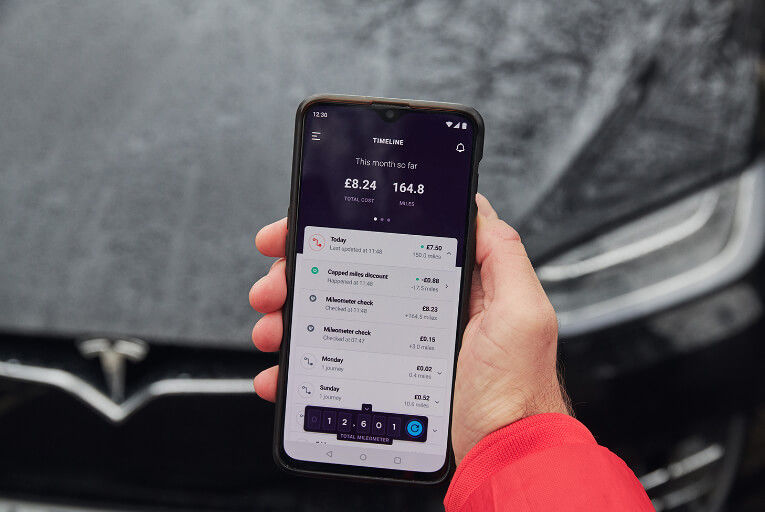Since car insurance became mandatory back in 1930, life has changed a lot. But most car insurance policies aren’t really all that different to those on offer almost 100 years ago…
Since we started up, By Miles has been on a mission to change that. We like to think we’ve helped pull things in the right direction. But there’s more to come. Here, our Head of Product, Kirsty Wilmot, talks us through the trends the industry needs to adapt to. Take it away, Kirsty…
…
With huge global events like the pandemic, technological advances and big shifts in the economic climate changing consumers’ needs and expectations, most industries have gone through significant change in recent years.
However, despite the richer data sets which InsurTech ventures are leveraging, the insurance industry lags behind the likes of personal banking when it comes to delivering a financial services product with flexible and personalised user experiences and payment structures.
Here, we’ll look at four key trends shaping the consumer landscape – and how car insurers can harness them to improve their offerings:
- Usage-based pricing.
- App-led personalisation.
- Flexible payment options.
- Sustainability.
Usage-based pricing.
Most people hate waste. Everyone hates wasting money. With the cost of living skyrocketing, that’s never been truer – so it’s hardly surprising that people are embracing the chance to save money with usage-based pricing.
For products where pricing has always been usage based – like energy – smart metres have become commonplace (enabled in part by governmental installation targets), allowing customers to track their usage in real-time and budget accordingly.
At the same time, the rise in the rental economy brings about even greater opportunities to cement usage-based pricing as the norm. These days, you really can rent whatever you need on-demand, from digital entertainment to smoke machines.
Transport has been one industry where usage-based approaches have really taken off. Average annual mileage has been trending downwards in recent years, and the pandemic only accelerated this shift. Meanwhile, the UK’s no-contract, vehicles-as-a-service industry is booming. Just think how many new car share and bike rental schemes have become household names in the last few years.
Of course, many of us still need or want to own a car. But in a world where we’re used to paying for what we use rather than a flat rate, it makes sense that people expect to see a saving from the fact they’re driving less.
Cutting back on mileage means paying less for petrol. And with the potential introduction of a pay-per-mile road tax, it could soon mean paying less tax as well. It only makes sense that it should allow customers to save money on car insurance too.
That’s why our pay-per-mile is a no-brainer for so many people – whether they pay monthly, or buy their miles for the year up front.
You wouldn’t buy a power drill just to put up one shelf. So why pay to insure miles you aren’t driving? It just doesn’t make sense anymore.
App-led personalisation.
When was the last time you sat around channel hopping?
What was once a common (if annoying) experience is a thing of the past for many of us. With entertainment platforms actively offering recommendations tailored to our particular tastes, why spend time searching through an endless list of uncurated options?
This kind of personalisation is now so pervasive it’s become a minimum expectation for all kinds of services. Utilities providers and banks offer apps where users can easily check on their personal usage/spending, access value-add features and content that are relevant to them, and manage their account/product selection. Some companies are even piloting the use of AI in predictive Net Promoter Score modelling – driving the Best Next Action most likely to retain, convert or avoid a negative review.
There’s no reason car insurance providers can’t offer an equally personalised and data-rich user experience. With our app, By Miles members can track their journeys and spending, locate their vehicle if it’s lost or stolen, check on their car’s mechanical health, set reminders for toll roads they’ve used, and make changes to their policy details.

The reality is, no one actually wants to claim on their car insurance. If, as an insurer, the only reason you’re giving your customers to open your mobile app is to find their policy documents when they need to make a claim, you’re missing an opportunity to foster greater customer engagement and stickiness. Instead, why not form habits with content and features that they’ll find useful on a day-to-day basis?
Flexible payment options.
Times are tight for many right now. And when you can’t be sure what’s around the corner, a bit of financial flexibility creates stability and drives customer advocacy. New players in the payments space are now offering consumers the option to pay in instalments for all kinds of purchases – even relatively small treats like takeaways – and consumers are seizing that opportunity.
With that in mind, it’s hardly surprising that people want the option to spread out the cost when they’re making much higher-value purchases, such as insurance. At By Miles, we give members a range of payment options to pick from, depending on what suits them. They can:
- Pay upfront for all the miles they want to cover, and get refunded at the end for any miles they didn’t drive.
- Spread the cost of their cover out over the whole year.
Sustainability.

Despite the economic pressure the country faces, consumers still consider sustainability a high priority. Sales of electric vehicles rose by 40% in 2022, while apps centred around waste reduction (through borrowing, sharing and short term rentals) became an industry unto themselves.
Against this backdrop, an ever-increasing number of organisations are investing in earning B-corp status and maximising their green credentials.
How can car insurance fit into this picture? One simple way is to price policies so that those making an effort to lower their carbon footprint are rewarded. With By Miles, driving less than your estimate means paying less than your quote. So if members choose to walk to the shops, they’ll have a little more to spend when they get there.
By offering more detail and transparency into what their driving actually costs, a per-mile model helps consumers make more informed decisions about how they use their cars.
In 2024, consumers shouldn’t have to put up with a one-size-fits-all approach when it comes to car insurance, and for the millions of people who have seen their mileage drop in the last few years, By Miles could be a perfect fit.




